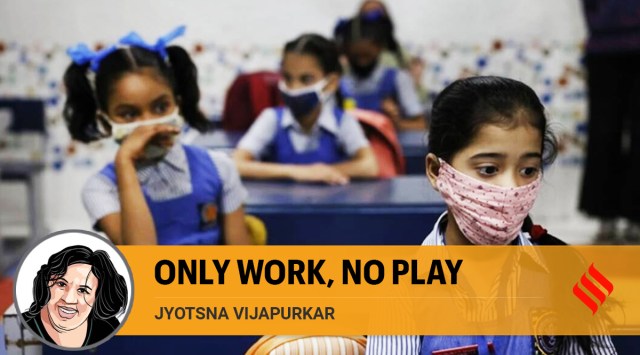
Being a kid these days must be really hard. By “these days”, I don’t mean the pandemic, but how things were before that, and no doubt will revert to after we are well out of the pandemic. A child spends five to six hours a day, six days a week, in school, mostly in a classroom, with a list of strict rules of how they should behave: Don’t talk; sit up straight; don’t fidget; pay attention; don’t run in the corridors; play only during PT period. We unfairly expect from kids the kind of behaviour that would be a challenge even for adults. All this is in the interest of supposedly valuable learning; and nearly all of it, coming from books. No exploration, no critical thinking, no fun. And very little hands-on work, if any.
This is not to say that children shouldn’t attend school, but to draw attention to how far the school experience is from the way they would naturally learn. Some structured learning is necessary, but does it have to be structured this way?
All this stems from the belief that education comes from textbooks alone. At a workshop, I conducted in a school whose science teacher had won the “best teacher” award, I asked if they had done an easily doable experiment in their textbook. They said “yes”. They meant they had covered it in the syllabus — the description, instruction and the questions and answers all rote learned from the book — not actually done the experiment! Similarly, I had once asked kids if they had seen mosquito larvae. Many had — “in the book”. When shown live larvae, the students guessed they were tadpoles. Clearly, they had seen neither in real life — or at least had not known what they were seeing if they had.
When students’ learning in out-of-school situations is found wanting, the finger almost invariably is pointed at the school, and that most intangible of entities, “the system”. While the latter can certainly do with an overhaul, the rest of us cannot absolve ourselves of all blame. After all, many more hours of a child’s day are spent out of school. What opportunities to learn, grow and develop through meaningful engagements are we providing our children? There, we as a society have failed miserably. Policy documents recommend connecting the school curriculum with children’s everyday experiences; for that to be possible, we first have to allow them those experiences.
Time for us to wake up and realise that it’s not all in the books.
This column first appeared in the print edition on December 20, 2021 under the title ‘Only work, no play’. The writer was on the faculty at Homi Bhabha Centre for Science Education, TIFR, Mumbai. Her research is on how science ought to be taught at primary and middle school